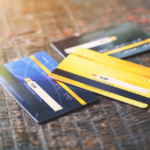There are three main credit bureaus in the US: Equifax, Experian and Transunion.
But did you know it’s not necessarily guaranteed that all three bureaus have your credit report on file? Lenders and creditors like a bank aren’t required to report to the credit bureaus. And since submitting information costs money, some may choose to report to a select bureau or not provide the information at all. This is especially true for smaller lenders.
On the other hand, large financial institutions skew towards reporting their customers’ data. That’s why it’s important to understand your credit history and what you can do if you don’t already have one.
The Fair Credit Reporting Act
In 1970, Congress passed the Fair Credit Reporting Act (FCRA). It was meant to protect consumers by ensuring the accuracy, equity, and privacy of information collected by reporting agencies. This included credit bureaus, medical information, and tenant screening.
What this means to you
Believe it or not, some people don’t have credit or a credit history. The Federal Reserve reports that up to 21% of consumers survive without a credit card. But many places require credit history to issue a loan, like for a car or home.
So, what else can you do if you don’t have the information needed to qualify? You can go the non-traditional route to get credit data including your history of rent payments, utility payments, employment verification, property history, bank account data, payday loans, retail cards, etc.
For example, Experian Go could help jump-start your credit and help you get established by creating an Experian credit report. By having this free service report on-time bill payments, you’ll have a simple way to increase your score.
This option is best for anyone without credit who is struggling to get approved for a credit card, loan, or another credit-based account. Experian Go may also help if you need to establish a credit history to qualify for an apartment or job, but do not want to take on the risk of a credit card.
The good news is 96% of lenders believe that during times of economic uncertainty and stress, non-traditional credit data provides a good way to evaluate creditworthiness. Going this route might be a bit challenging but it could be a feasible option depending on your situation. There may be additional conditions required to qualify for a loan using this method, such as an income minimum or reserved mortgage payments.
People Also Read
Build your credit history
If you don’t already have a credit history, there’s no time like the present to build one. One way you could do this is by becoming an authorized user on one of your family member’s or friends’ existing credit cards. Or consider opening a low-balance credit card under your name.
Be sure to verify that the credit card company will report the account to all three bureaus. As soon as you become an authorized user, you can start building your credit history. Get started soon since it can take at least 6 months or longer before FICO generates a score.
Contact the three credit bureaus
If you do have credit, you can contact the credit bureaus to confirm that credit reports currently reside at all three. You can reach them either online or by calling their toll-free numbers. In the event you find that not all three have your information, you could go back to your bank or credit union and ask that it begin reporting to all three bureaus.
Know your credit score
If you don’t know your credit score, you need to learn it. Credit scores dictate our ability to get credit and at what interest rate. You can get your score “free” from any of the three credit reporting bureaus or from sites such as CreditKarma.com. You may have to jump through some hoops to get it “free” such as signing up for a trial of a credit monitoring service.
Be aware that this won’t be your true FICO score, which is the one most lenders rely on. VantageScore was developed by the three credit reporting bureaus to predict how likely you are to repay borrowed money. You can have a score within a month or two of opening your first credit account. In any event, either credit score is a strong indicator of where you stand financially.
Where to get your FICO score
If you want to know your true FICO score, there’s only one place where you can get it— on www.myfico.com. You can obtain it at no cost if you sign up for a free trial of the company’s Score Watch program or purchase it for $19.95. You can learn your Vantagescore for free at their partner sites. (Link this to: https://vantagescore.com/consumers/tools/free-credit-scores/)
What’s a good credit score?
FICO scores range from 300 to 850. If you have a score above 700, you should be able to get that mortgage or auto loan without a hitch. On the other hand, if your score is less than 580, you may run into trouble.
Where is a good place to find help?
If you’re struggling with credit card debt, National Debt Relief can help. Our debt coaches and their team negotiate with creditors on your behalf so that you pay less than you owe—in a shorter amount of time. And the less debt you have on your credit report, the better qualified you’ll be to receive a loan at a good interest rate.











